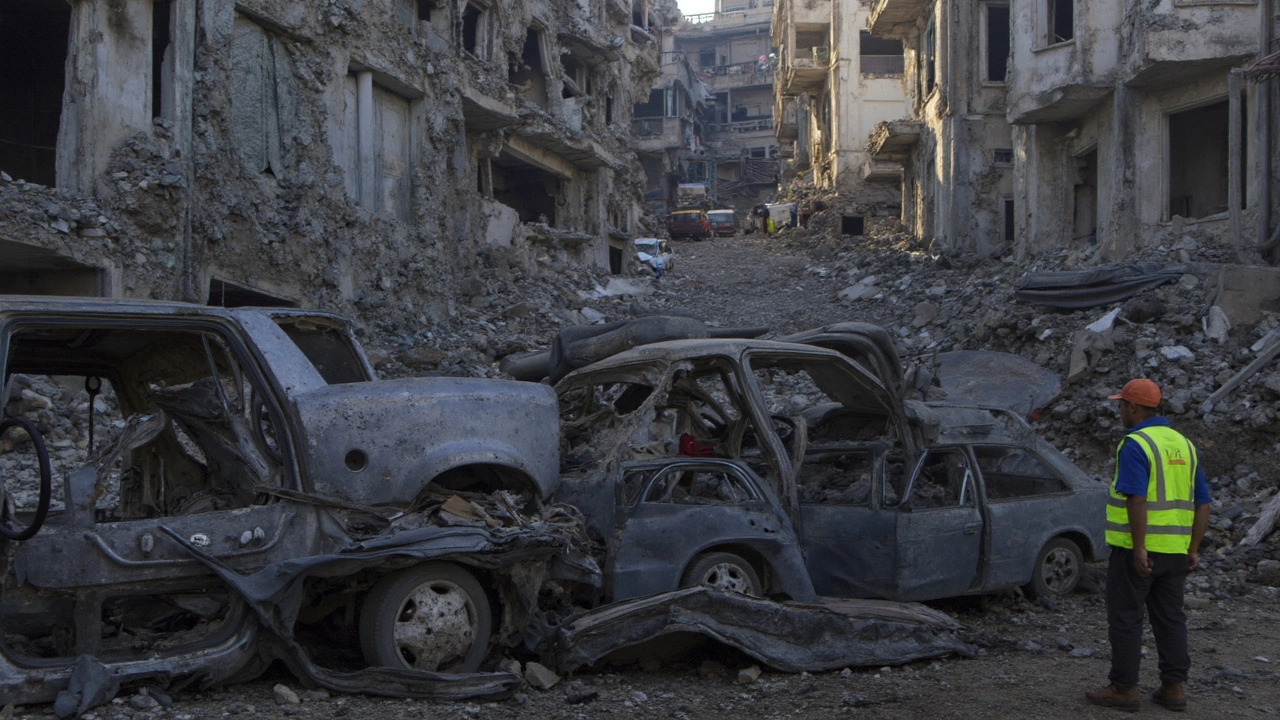Missiles Shatter Cities as Israel-Iran War Escalates
The Middle East woke up to a harsh reality in June 2025. Two military heavyweights—Israel and Iran—crossed lines that many hoped would never be crossed. The result? Neighborhoods flattened, lives stolen, and a region pushed closer to chaos. Iran’s massive missile barrage on June 14, which followed Israel’s sweeping Operation Rising Lion, set off alarms not just in Israel’s biggest cities, but around the world. Tel Aviv and its surrounding towns felt the full force, with sudden explosions turning busy streets into disaster zones.
One story captured both the heartbreak and resilience woven into this war. In Rishon Lezion, just south of Tel Aviv, rescue workers dug through the ruins of a collapsed home. There, under twisted beams and shattered concrete, a three-month-old baby was pulled out alive. The infant’s survival offered a glimmer of hope amid the scene of two confirmed deaths and 19 wounded. Yet this single rescue can’t hide the trauma or growing civilian toll: across Israeli towns, the constant wail of sirens has made sleep and safety impossible luxuries.
The Israeli military’s Operation Rising Lion had kicked off the previous day, striking deep into Iran’s military heart. Israeli planes reportedly targeted nuclear facilities in cities like Natanz and Tehran—places once secret and now burning. Revolutionary Guard commander Hossein Salami was among the high-profile military targets. Reports from Iran tell of more civilian casualties and the deaths of nuclear scientists, echoing the pain seen in Israel.
Power Plays, Proxy Tensions, and a World Watching
This conflict isn’t just about missiles or military might. Regional analysts say Israel’s push may weaken Iran’s reach over its proxy allies in Gaza, Lebanon, Yemen, and Iraq. These groups have been Iran’s levers in regional power games, often sparking border clashes and keeping neighbors on edge. But this time, Israel’s strikes on Iranian command centers hope to break the cycle. That means a possible, if risky, chance for some Arab states to pursue new peace deals—or at least, rethink their alliances.
But there’s no escaping the price. International news channels are filled with stark images: flattened neighborhoods, terrified families clutching children, and mourners standing beside fresh graves. Hospitals in both Iran and Israel have struggled to deal with an unending stream of wounded civilians. Aid groups warn that survivors face trauma that won’t heal with the ceasefire. Food and medicine shortages loom in affected areas, while power cuts and displaced families become the new normal.
The global reaction has been a mix of calls for calm and thinly veiled anxieties about a bigger regional meltdown. Some world leaders have pushed for urgent talks, but as missiles fly, diplomacy is left scrambling. Even as the strategic implications are debated—like whether Iran’s influence will truly wane or which regional players will rise from the rubble—ordinary people are forced to confront daily fear and loss.


Author
Ra'eesa Moosa
I am a journalist with a keen interest in covering the intricate details of daily events across Africa. My work focuses on delivering accurate and insightful news reports. Each day, I strive to bring light to the stories that shape our continent's narrative. My passion for digging deeper into issues helps in crafting stories that not only inform but also provoke thought.